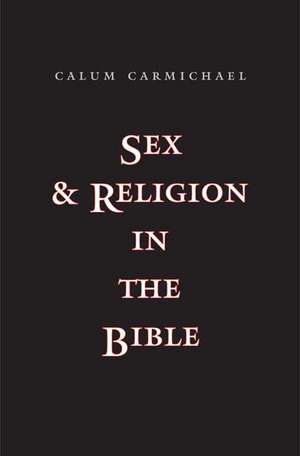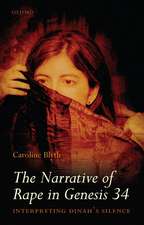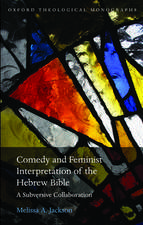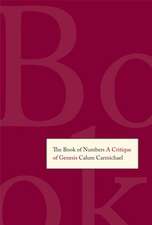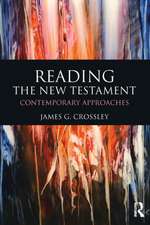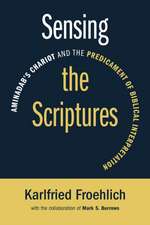Sex and Religion in the Bible
Autor Calum Carmichaelen Limba Engleză Hardback – 23 feb 2010
Preț: 498.37 lei
Preț vechi: 647.23 lei
-23% Nou
Puncte Express: 748
Preț estimativ în valută:
95.36€ • 99.57$ • 78.75£
95.36€ • 99.57$ • 78.75£
Carte tipărită la comandă
Livrare economică 15-29 aprilie
Preluare comenzi: 021 569.72.76
Specificații
ISBN-13: 9780300153774
ISBN-10: 0300153775
Pagini: 224
Dimensiuni: 156 x 235 x 17 mm
Greutate: 0.52 kg
Editura: Yale University Press
Colecția Yale University Press
ISBN-10: 0300153775
Pagini: 224
Dimensiuni: 156 x 235 x 17 mm
Greutate: 0.52 kg
Editura: Yale University Press
Colecția Yale University Press
Notă biografică
Calum Carmichael is a professor of comparative literature and adjunct professor of law at Cornell University.
Recenzii
“Calum Carmichael is one of the most original voices in Biblical scholarship today. This newest book on sex and religion in the Bible continues Carmichael’s stellar record of bringing the most traditional of philological methods to bear on matters of contemporary ethical, literary, cultural, and religious interest. A masterpiece of close readings that pull out nuances of theology, lived experience, and literary significance from a series of carefully chosen scenes from the Old and New Testaments.”— Julia Reinhard Lupton, University of California, Irvine
“Tracing the links between law codes and stories, Calum Carmichael’s fascinating study offers a key to the Bible’s treatment of human sexual life. From the Book of Genesis to the Gospel of John, Carmichael uncovers the patterns of thought that express the biblical authors’ understanding of this central sphere of human existence.”—Ronna Burger, Tulane University
"Combining an intensive reading of the text with insightful connections between narrative and law, Carmichael offers original and convincing interpretations of how people in biblical times thought about issues such as sexuality, marriage, fertility, and love. Highly recommended for anyone interested in new ways of understanding the Bible in its historical and literary context."—Geoffrey Miller, New York University Law School
